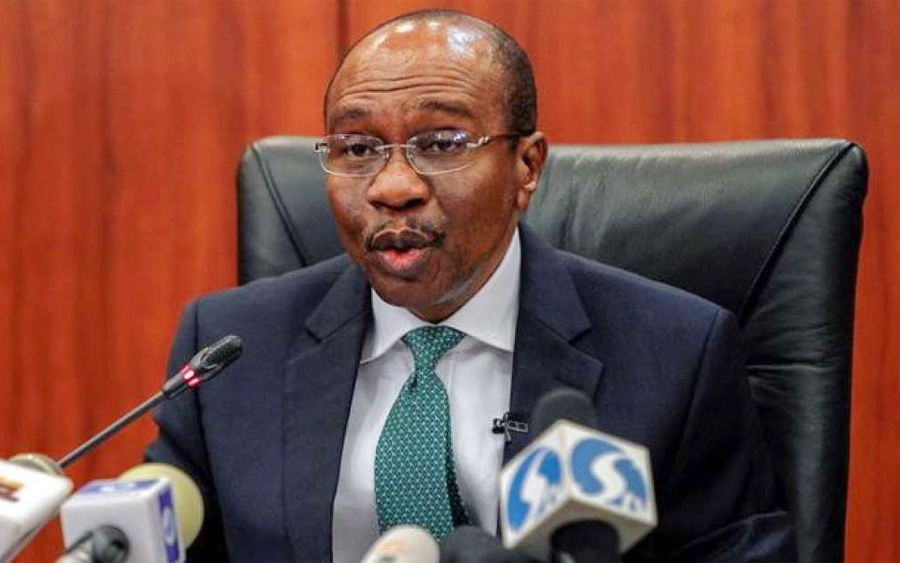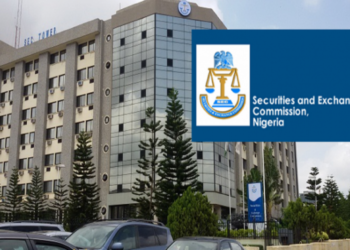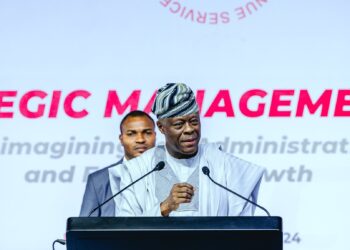Nigeria’s apex bank, the Central Bank of Nigeria (CBN) is on track to close 2019 without making public its 2018 Annual reports and accounts. By tradition, the audited account is published in the second half of the year and can be downloaded on the website of the CBN.
However, the audited account is yet to be published keeping stakeholders and investors in the dark about the financial health of the CBN. The annual report of the central bank states the balance sheet and income statement of the bank and is audited by an independent audit firm.
Why this matters: Sighting the audited accounts of the central bank is critical for a number of reasons. Apart from the fact that it is a statutory obligation, it helps investors to independently dissect the impact of the developmental policies of the bank on its balance sheet over the years. Here are other reasons why it is particularly critical.
Bank’s balance sheet: The Central Bank’s balance sheet is thought to have exploded over the last 4 years following its staunch defense of the naira, which is driven by a convoluted monetary policy. From dishing out mouth-watering interest rates via Open Market Operations (OMO) bills, to massive lending sprees at concessionary rates in support of the government’s agriculture policy, its balance sheet has expanded.
- In its 2016 annual report, the bank’s balance sheet rose by a whopping 41.6% to N21 trillion and then 35% to N29.3 trillion in 2017.
- It explained, that “the increase in assets resulted mainly from External Reserves, Loans, and Receivables, holdings of SDR and Quota in the IMF. The corresponding increase on the liability side resulted mainly from increased CBN issued instruments, increased IMF and other liabilities.”
- One expects the balance sheet to have exceeded N30 trillion already.
- Recently the CBN edged out investors other than banks and foreign investors from accessing the OMO market in a move seen as a larger strategy to curb its hefty interest rate payout.
- Data from the CBN indicate it has a total OMO Bills of about N13.8trillion out of which local banks held N3.95 trillion, corporates N3.7 trillion and foreign investors N6.1 trillion.
- A recent Nairametrics report noted that OMO Bills were as high as N17 trillion in August as the CBN sold more bills in a bid to “control the supply of money”. In its 2017 annual report, the CBN claimed that total instruments issued was about N8.9 trillion.
Profit and loss; In 2017 the CBN posted a profit after tax of N180.5 billion down from N203.5 billion in 2016.
- A major driver for the drop in profits was its Net Interest Income/Loss. In 2017, it posted a Net interest loss of N659 billion in 2017 due to a net interest expense of N1.3 trillion.
- We believe the main reason for this is due to its high-interest rates from its borrowing against low-interest rates from its lending, an obvious mismatch that will even be bigger in 2019 considering its desperation to get investors out of the OMO market.
- A loss-making CBN will obviously spook markets and investors giving the impression that a devaluation is looming or that the CBN will have to print more. Its recent move to reduce interest rates across the board is perhaps the closest indication that the CBN may not be able to sustain its policy amidst a weakened balance sheet.
AMCON: The CBN’s largest debtor is the Asset Management Corporation of Nigeria (AMCON) and as of 2017 was being owed about N3.8 trillion in bonds out of the N10 trillion in loans and receivables stated in its balance sheet as at 2017.
- The CBN expects the bonds to mature in 2023 and still carries it in its books as performing. During the year, CBN report which was endorsed by CBN Governor, Godwin Emefiele, claimed the investment of N898.45 billion in Polaris Bank Limited (defunct Skye Bank Plc) raised the corporation’s liabilities to N5.43 trillion as at June last year.
- The CBN report stated, “The carrying value of AMCON’s liabilities increased from N4.53 trillion at end-June 2018 to N5.43 trillion at end-December 2018, arising from the Corporation’s investment of N898.45 billion in Polaris Bank Ltd. AMCON’s liabilities N5.43 trillion was projected to be covered by the Banking Sector Resolution Cost Trust Fund (BSRCTF) and the corporation’s internal credit recoveries and asset sales. “Contributions to the BSRCTF by the CBN and 15 participating banks for the year 2018 were valued N228.28 billion.“
- AMCON has, however, made cash recoveries of N89.97 billion for the 2018 financial year from asset sales and credit repayments, bringing its total recoveries from inception to end-December 2018 to N759.05 billion, consisting of cash, N366.85 billion; shares forfeiture, N128.47 billion; and property forfeiture, N263.73 billion.
Its 2018 annual report should provide better details on the state of health of the bonds and whether AMCON is servicing it as at when due.
CBN Loans: The CBN loans to state government caused a difficult stir earlier in the year when a conversation between the CBN Governor and his top personnel leaked.
- According to the CBN, the discussion was about a N150 billion provision its auditors had asked it to take, which if acceded to would effectively wipe out its shareholders’ funds.
- The provision was part of the N650 billion loan, which the CBN lent to State Governments as bailouts that had now gone bad (states are not servicing the loan as expected).
- It eventually convinced the auditors to allow it to avoid taking provisions as the loans are backed by the state government’s share of allocation.
- While this issue may have been put to bed it shows just what it takes to send the CBN’s balance sheet into losses and wiping out its shareholder’s funds.
- As of 2017, the CBN’s shareholders fund was N819.2 billion thus suggesting that a N150 billion provision could wipe out shareholder’s fund suggest their balance sheet may just be weaker in 2018.
The CBN under Godwin Emefiele has been coy about publishing annual reports including notes to the accounts. As we approach 2020, one expects someday sooner rather than later the CBN will release the annual report.



















I will like to apply for the loan ,To upgrade my business.